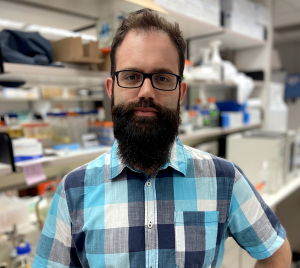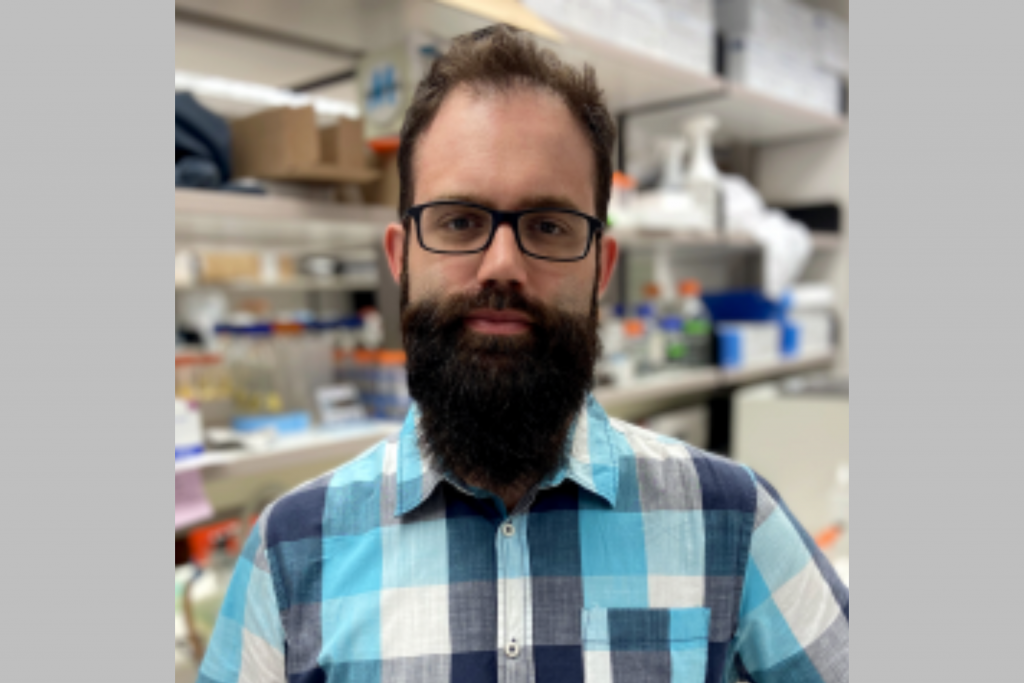We’re taking time to get to know the members of the GSA’s Early Career Scientist Committees. Join us to learn more about our 2020 early career scientist advocates.

Adrien Assié
Steering Committee
Postdoc at Baylor College of Medicine
Research Interest
I am a microbiologist and bioinformatician interested in host-microbe interactions. Since the beginning of my academic career, I have been fascinated by the ecological concepts that apply on small scales, particularly how complex organisms such as animals interact with communities of microorganisms.
I worked in marine symbioses for my PhD studies, specifically looking at chemosynthetic bacteria associated with giant mussels found at hydrothermal vents in the deep sea. Deciphering the genetic code of these bacteria is an important step toward understanding how chemosynthetic bacteria can interact beneficially with their invertebrate mussel host and their environment. I cataloged a previously overlooked ectosymbiont associated with these mussels and dove into the secrets of this newly cataloged genome. We called this ectosymbiont Thiobarba childressi: Thiobarba because the bacteria is capable of oxidizing sulfur (thio) and forms thick filament patches on the mussel’s gills like a beard (barba); and childressi, in reference to the species of mussel where I found this bacteria—Bathymodiolus childressi.
In my current postdoctoral position, I am continuing to develop the microbial ecology and bioinformatics skills I developed during my PhD but on a different model system: the roundworm Caenorhabditis elegans. My aim is to use my previous knowledge and apply my skill set to a system that can be scaled to high throughput experiments and used to bridge computational and laboratory work. Using C. elegans in combination with a large collection of bacteria isolated from both wild C. elegans and their natural habitats, such as rotting apples, I am trying to understand how metabolic interaction networks influence how microbial communities organize themselves within the nematode gut.
As a PhD-trained scientist, you have many career options. What career paths interest you the most?
Working on understanding microbiomes in a system like C. elegans is an incredible opportunity. Although this nematode has been a model organism since the 1960s, many open questions still remain. I am particularly interested in understanding C. elegans’ feeding habits: how consumption works, how digestion and the uptake of nutrients are regulated, and how the nematode interacts with gut-associated microorganisms. I have found that each new answer comes with 10 new questions, and organizing projects and experiments while exploring large sequencing datasets motivates me to keep going forward with my research.
In addition to your research, how else do you want to advance the scientific enterprise?
In the current uncertain times, I always keep in mind one important lesson learned during my PhD: stay flexible and be able to adapt for the better. There are many canonical paths to academic employment stability but often you will craft your own path through unexpected opportunities. Academia is a gigantic monolith: a system that keeps pushing the boundaries of science and knowledge, but is often slow to adapt to an ever-changing world. Entering the academic job market for permanent leadership positions seems like a herculean challenge. In order to secure such a position as a researcher and continue working on our passions, it is sometimes difficult to be passionate about anything other than our work. But passion is not enough.
We need to stay invested in working toward making academia a better place for current and upcoming researchers. This work can be done through many paths, and I would like to contribute to this effort by helping local organizations such as postdoctoral associations to help improve the working environment of postdocs globally. I also plan to organize seminar series and workshops which would allow scientists to share their work and their passion with a wider audience, reaching not only the scientific community but also the general public.
As a leader within the Genetics Society of America, what do you hope to accomplish?
The GSA Early Career Leadership Program offers an amazing opportunity to connect and collaborate with people who share a similar drive to improve the scientific community. So far I have had a very positive and encouraging experience, including working on initiatives such as the Science in a Snapshot seminars, for which I recently designed the logo on the registration site. In the future, I hope to be able to contribute to similar initiatives and provide a platform for upcoming geneticists to share their work, learn how to choose their academic career path, and feel confident in their choice.
Previous Leadership Experiences
- Organizer of the Virtual Worm Sessions, a C. elegans webinar series.
- ASM TMC chapter – Chair of Social Media
- PhD students’ representative – Max Planck Institute for Marine Microbiology
Connect With Adrien Assié:































